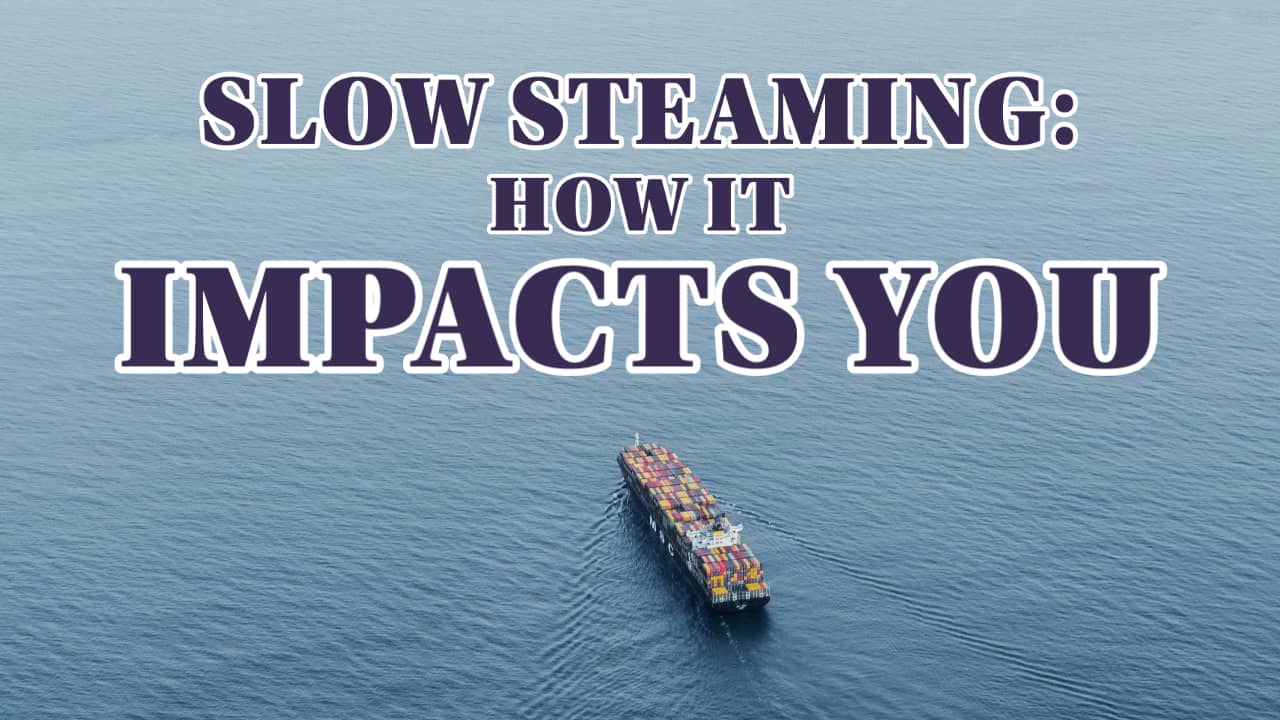
How Vessel Slow Steaming May Affect Your Import/Export Business
3-minute read
Newly-appointed New Zealand Council of Cargo Owners (NZCCO) chair Ant Boyles has expressed concern that container lines may opt for slow steaming to comply with pending International Maritime Organization (IMO) emissions-reducing regulations.
Energy Efficiency Existing Ship Index (EEXI) and carbon intensity indicator (CII) requirements are to come into force from January 1 next year, following amendments to the International Convention for the Prevention of Pollution from Ships (MARPOL) Annex VI.
New mandatory measures to cut the carbon intensity of international shipping will set shipping on a course to meet greenhouse gas reduction targets established in the 2018 Initial IMO Strategy for Reducing GHG Emissions from Ships.
The new measures will require all ships to calculate their Energy Efficiency Existing Ship Index (EEXI) following technical means to improve their energy efficiency and to establish their annual operational carbon intensity indicator and rating.
Carbon intensity links the GHG emissions to the amount of cargo carried over the distance travelled.
Ships will get a rating of their energy efficiency (A, B, C, D, E – where A is the best). Administrations, port authorities and other stakeholders, as appropriate, are encouraged to provide incentives to ships rated as A or B, also sending out a strong signal to the markets.
“If the ships that don’t meet the index requirements can’t reduce their emissions in any way other than to burn less fuel, which will potentially mean going slower, then there is a reasonable chance of it coming along.
“With vessels going slower, the capacity will be impacted – and there may be less vessels calling at New Zealand, so that will potentially have some cost impact if there is more demand for the space available.
“It very much depends on how the lines react,” Mr Boyles told the Shipping GazetteTM.
Mr Boyle said shippers were essentially seeking to establish:
• Which vessels in the current global fleet might not meet the standards of the new efficiency tests?
• Of those, which will stay in service but under changed operational management – “one of the possibilities being slow steaming” – and which may be scrapped altogether?
“And if the vessels are slowed down and the rotations of the lines are altered, for argument so they are not calling with the same frequencies, is that going to be the outcome or are the lines going to put more vessels in to maintain the frequencies that they have currently?
“There could be unintended consequences if the latter happens – we could actually have more ships, potentially leading to more emissions!”
There is also a time factor that will impact customers, who will see their goods become delayed if transit times increase.
Mr Boyle emphasised there was a need for the global shipping sector to improve its emissions footprint. However, New Zealand is a long way from the markets, and slow steaming will have an impact on getting the goods to and from the country.
We will report on the comments from the International Container Lines Committee when released. Stay tuned.
Source: The New Zealand Shipping Gazette and International Maritime Organization
P.S. Easy Freight Ltd helps New Zealand importers & exporters to save money on international freight and reduce mistakes by guiding how to comply with Customs and biosecurity rules.
➔ Contact us now to learn how we can assist you.
